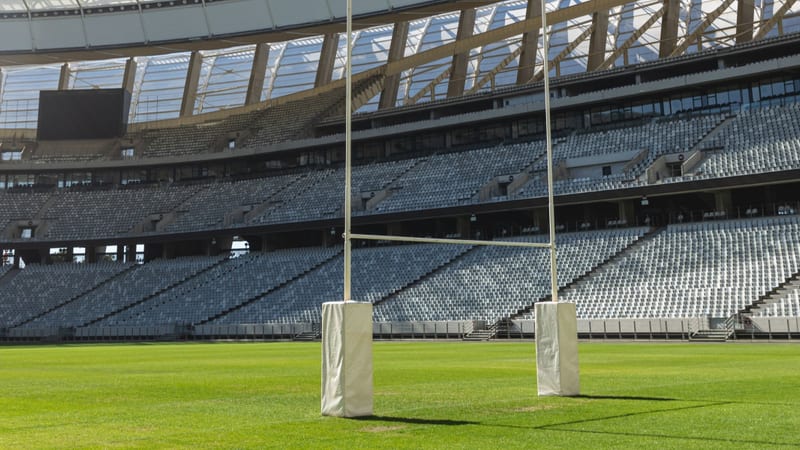Deepfakes & AI-powered cybercrime in sport — how can athletes & clubs protect themselves?

We discuss the mounting dangers of AI-powered cybercrime across the world of sport with David Andrew — the Founder and Managing Partner of Tiaki.
Read more
We make the difference. Talk to us: 0333 004 4488 | hello@brabners.com
AuthorsCatherine ForshawHuzaifa Moosa
6 min read

Here, Associate and sports law specialist Catherine Forshaw and Trainee Solicitor Huzaifa Moosa explain the new rules, how clubs will be affected and how we can help clubs get prepared.
Traditionally, the Super League, Championship and League One operated a promotion and relegation system. However, when American-based global sports entertainment and media company IMG entered into a 12-year strategic partnership with the RFL in 2022, it became clear that a radical strategic repositioning of the sport was envisaged.
In March 2023, IMG proposed new grading criteria to the RFL Council — based on both on-field and off-field standards — to determine the league in which clubs would play. The intention was to focus on fan engagement and boost investment through various streams (including sponsorship, television deals, e-commerce and technology).
At a special general meeting in Huddersfield on 19 April, the Rugby League Council voted on the new proposals. Other than Salford Red Devils that abstained, the Super League clubs were unanimous in their approval. Eight of the 13 Championship clubs (with one abstention) approved and seven of the 11 League One clubs (with one abstention) voted in favour of the proposal. Catalan Dragons and Toulouse Olympique were not entitled to vote. Due to the weighting of the votes, there was an 86% majority in favour of the new grading criteria.
The new proposals will come into place from 2025, but the grading process will take place at the end of this season.
All professional clubs will be reviewed and allocated a grade with a maximum of 20 points available in accordance with the following five criteria (subject to minimum standards).
1. Fandom
Based on match-day attendance, television and digital viewership, social media and online fan engagement (max. 5 points available).
2. On-Field Performance
Teams across all three leagues will be ranked (1 to 36) depending on their league finishes of the preceding three years. Bonus points will be given to those teams who win the league or cup in the previous year (max. 5 points available).
3. Finance
Clubs will be assessed on business performance, profitability, sustainable investment, diversified revenue, and sound financial management (max. 4.5 points available).
4. Stadium
The quality of facilities and stadium (based on minimum standards), and the match-day experience for attendees and online/television viewers (max. 3 points available).
5. Community
Based on the success of club’s foundations and/or charitable work, together with its fanbase potential based on number of clubs and area population (max. 2.5 points available).
Clubs with 15 or more points will be classed as Grade A; those with between 7.5 and 14 points will be classed as Grade B; and those with between 1 and 7 will be classed as Grade C.
Grade A clubs are guaranteed a place in the Super League and will be exempt from relegation so long as they retain this status. Grade B clubs will be offered places in the Super League if available but will otherwise play in the Championship. Grade C clubs will play in the Championship or League 1.
While the RFL is yet to detail all the information it needs, there may be a significant amount of administrative work required by clubs. This is likely to include properly audited financial accounts, business plans, information on the club’s foundation, fan engagement and details of scheduled stadium and facility repairs. Although the more abstract criteria may provide for more rigorous minimum standards, they may also necessitate even more data and information. Although the hope is that this will boost innovation and standards (resulting in increased investment), many smaller clubs may struggle to meet this administrative burden and cost.
Some clubs — including Barrow Raiders, which voted against the proposals — suggested that there was a lack of transparency and detail in the proposal, as it is unclear exactly what is required to be classed as a Grade A club. It seems likely that — at least for a few years, until the RFL establishes precedent, a clear framework for assessment and guides for its assessors — there will be complaints and confusion about grading. As it is currently unclear whether an appeals process is in place (and how long such appeals might take), there could be some teething issues that result in the RFL reviewing and refreshing its assessment standards.
It has also been suggested that these changes are unnecessary, particularly as engagement and crowds at Super League and Championship games have increased. However, it is worth noting that the importance placed on off-field performance (particularly financial management) may be crucial in avoiding the crises faced in Rugby Union by major clubs like Wasps and Worcester Warriors. While there is some concern that this may create a closed shop, the increased financial security of clubs joining the Super League may allow new teams to compete more consistently, rather than face successive promotions and relegations.
It is all too apparent why the prospect of avoiding relegation will be popular for those clubs already in the Super League. A more established reputation, larger facilities and higher revenue will generally facilitate better scores across the criteria. While annual re-evaluations are planned, their transparency is yet to be seen.
While the true implications of this radical step will only be seen in 2025, clubs can take steps to improve their prospects and prepare for their evaluations in the interim.
We can support clubs in their efforts to secure gradings towards the top of the pyramid. If you would like to discuss how these new changes could affect your club or how your club can best prepare for the new grading system, get in touch with me at catherine.forshaw@brabners.com.

We discuss the mounting dangers of AI-powered cybercrime across the world of sport with David Andrew — the Founder and Managing Partner of Tiaki.
Read more

We explore how structural, environmental and organisational shifts are shaping the 2026 Winter Olympic and Paralympic Games.
Read more

We examine the consequences of Palou’s defection and the wider lessons for businesses negotiating contracts with athletes or other high‑value individuals.
Read more